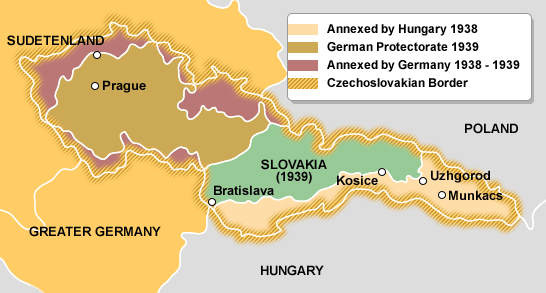Absolutely, this weakness was actually spotted pretty early on in the war, De Gaulle saw it, had the French and British been able to better use the tanks they had during the counteroffensives of in May 1940, they could have cut off Guderians Panzers after he had advanced from Sedan, the war could very well have turned out quite differently.
An excellent point.
They could, just to add, actually have annihilated the whole German thrust into the West right there in the Ardennes. The hilly and densely forested range that the Germans had to cross to even thrust at Sedan.
As it were their intelligence was lousy, possibly (but not alone) also neglected on account of incompetent generalship holding the belief that no Panzer could ever negotiate the Ardennes terrain, exacerbated by the (false) conviction of the Maginot line providing sufficient protection further South and that the Germans would advance into and thru Belgium the same way as they had in WWI.
As such the Allies fell into the Belgian trap, deeming the Southern flank protected by the insurmountable Maginot line and subsequently concentrating their major forces further North. And where the Germans indeed attacked there as well, the major thrust came thru the Ardennes and at inferior (in numbers and equipment) defenders, with the Maginot being rendered ineffective.
But crossing the Ardennes had been a massive gamble, relying on the move to not being detected. As things developed, the whole advance became a massive headache, in that the virtually impossible proper co-ordination of vehicles, troops and tanks in that narrow terrain caused probably one of the biggest traffic jams in history, with everybody falling over everybody else, vehicles non- manoeuvrable in the ensuing congestion and thus providing an incredible abundance of sitting ducks, had there only been a shooter around.
By sheer luck all this went un-detected by the Allies and the Germans could finally manage to unravel the whole mess, but traversing the Ardennes took two days longer than planned. Enough time, had the Allies known about it all, to either pulverize the whole force still in the difficult terrain or (and) to deploy forces from the North to Sedan, thus to more effectively resist and probably defeat the Germans.
The subsequent German
Sichelschnitt (scythe cut) to the Channel could have been prevented altogether.
Well, could have, would have, luck was on Germany's side and it consisted primarily of the French side being led by tottering old generals well past their shelf life, stuck in old fashioned strategic thinking, bias and national arrogance.


